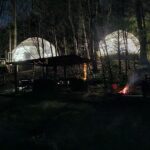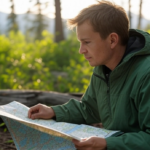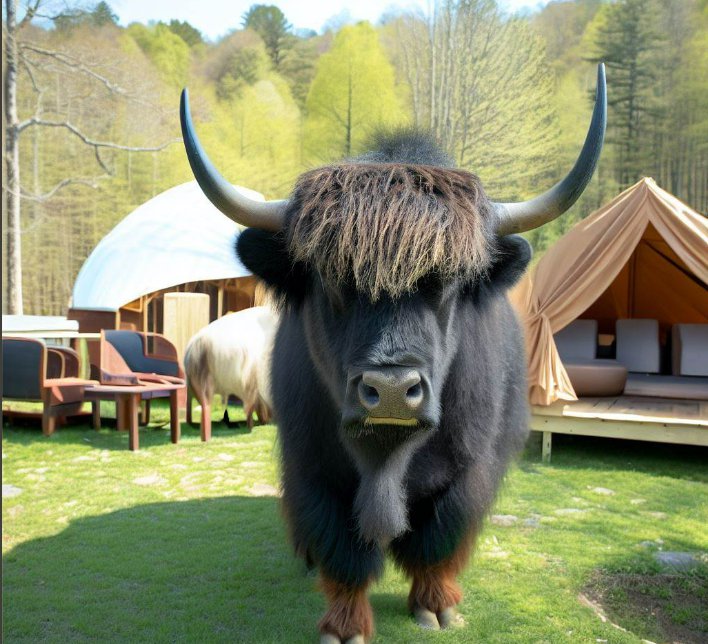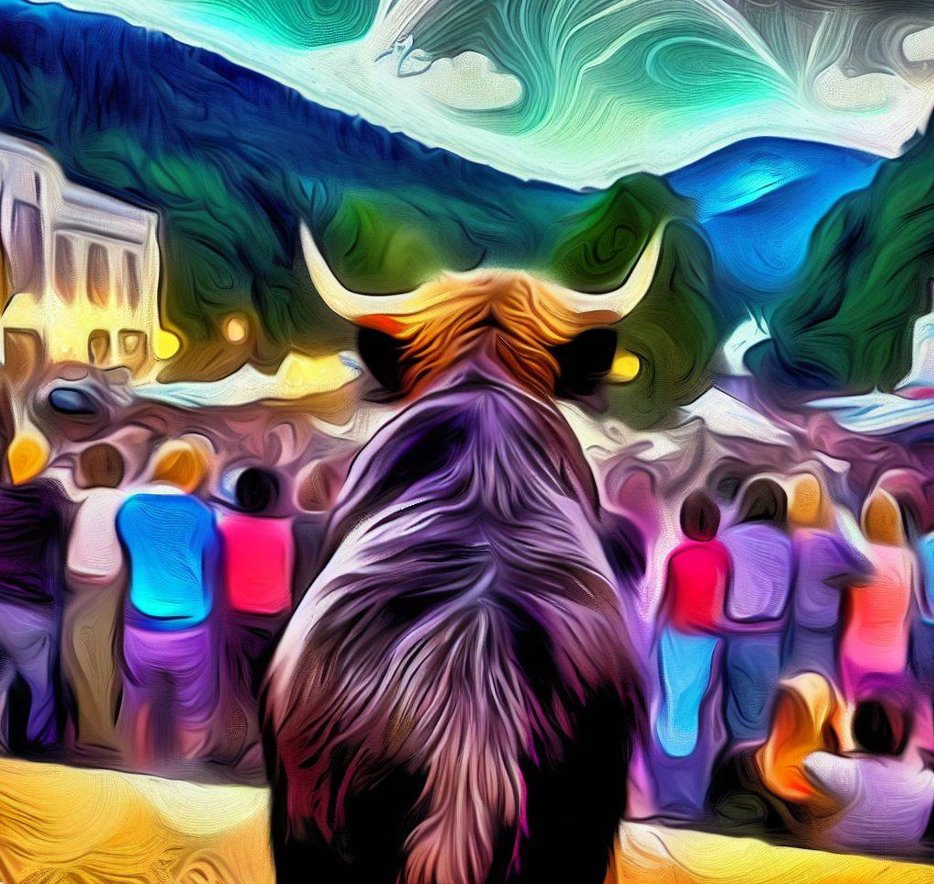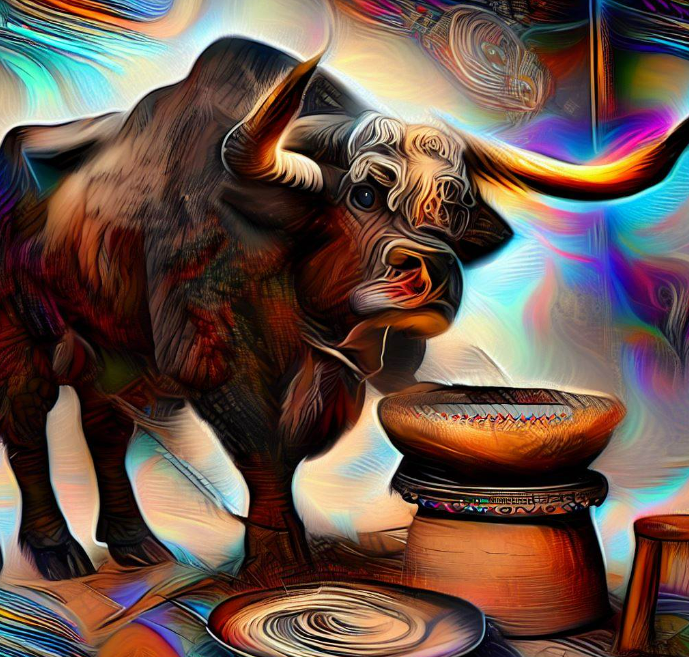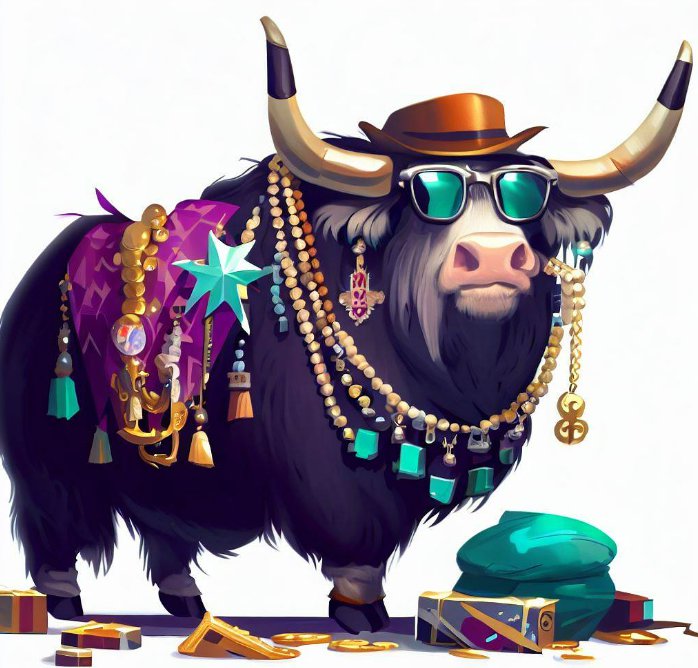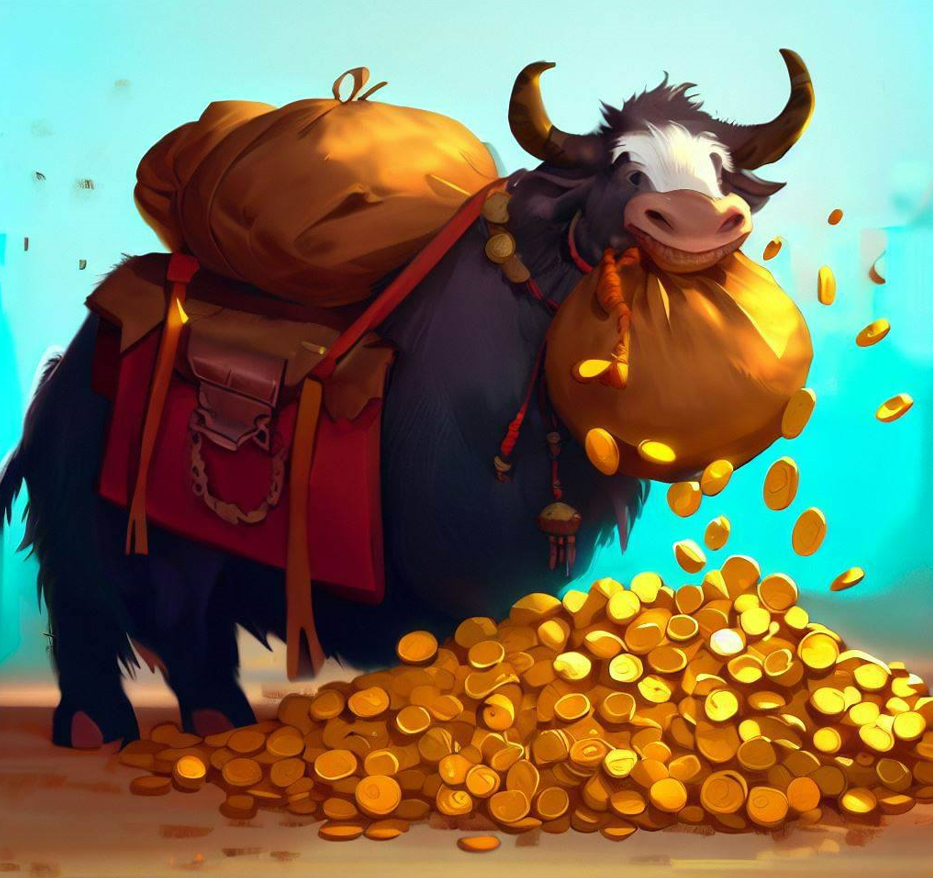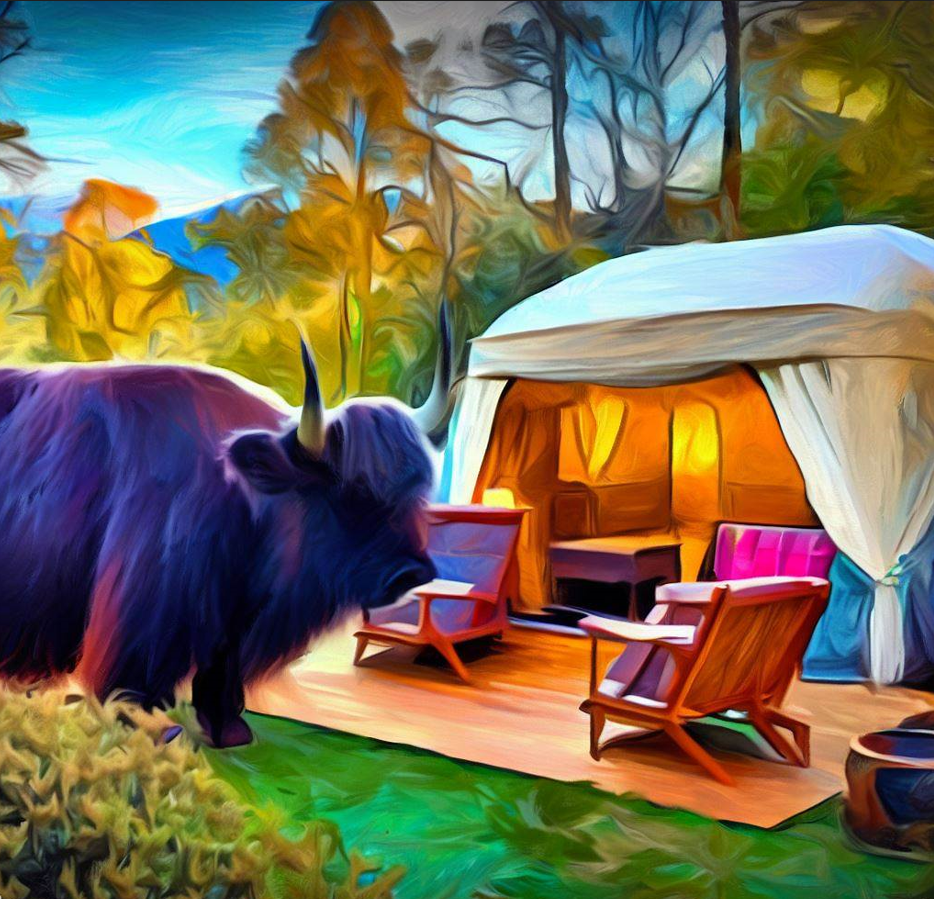YakDAO’s appearance with Dr. Brook.
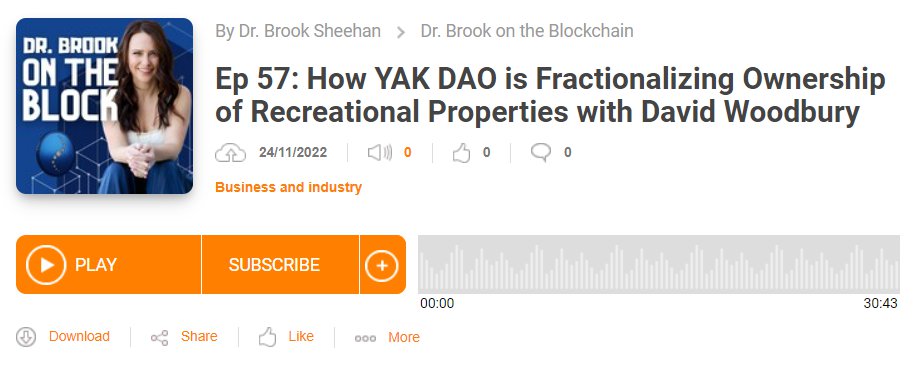
“What I think blockchain does is it creates a lot more transparency in the way that the technology works.
It’s a long ways out. I don’t think a lot of these systems are going to be reinvented overnight.”
“But you know the fact that a realtor still gets like what six or seven percent of a transaction that’s a really significant piece of a of what is most people’s the majority of their net worth if you think about that.”
Welcome to another episode of Dr. Brooke on the block.
It’s time to grab a seat, buckle up and take a ride with me through the wild wild west of the Web 3 universe. We’re going to learn all about coins and tokens, NFTs and contracts, digital real estate and the metaverse and so much more.
There is a lot to get through on the block but I am here to pave the way and help you avoid those nasty pitfalls and rug pulls so you don’t get hurt. I’m going to also introduce you to some interesting characters along the way. Are you ready? Your ride starts now.
Hey, welcome to another episode of Dr. Brooke on the block. You know who I am. Dr. Brooke, the friendly cryptopractor.
But today I am joined by my co pilot David Woodbury who is a veteran of the US Coast Guard serial entrepreneur and speaker on Web 3. He’s also the CEO of YakDAO which we’re going to talk about today, which is a luxury camping brand off fractional ownership through NFT memberships.
YakDAO is revolutionizing the way individuals can own and engage with real estate assets. YakDAOis developing a global luxury camping brand that fractionalizes ownership of recreational properties through NFT memberships (and token holders). Welcome to the show David so glad you’re here.
Hey, Dr. Brooke, thanks for having me glad to be here.
Absolutely. Like I always ask my co pilots on the show, we want to hear your origin story and how you went from the Coast Guard to understanding the Web 3 world and doing the work that you’re doing now.
Sure. Yeah, the Coast Guard was quite some time ago. So there was a lot in between that and getting into Web 3, but my background is a serial entrepreneur set up my first company back in 2008.
It was a wireless service provider. That company was acquired in 2012 and then built a marketplace called Camp Native. So it’s a booking end for campsites and RV parks all around the world.
So that’s sort of how I got to the outdoor space in, I guess, 2017. I started investing in crypto.
I had known about Bitcoin since like 2014, but unfortunately didn’t make my first investment until like most people got really excited about that bull run in 2017. So it’s going to be investing later on that year and got crushed when it dropped, but that was how I kind of got my first chops in the space.
Like most people you’ve got to lose a little to learn a little.
Absolutely. So yeah, from there, I just I continue to invest as DCA into the market, do my own research and started following a few different, you know, YouTube influencers or whatnot. And I guess what really got me going was in 2020 when COVID hit and I started watching like governments just print fiat currency like crazy and there was no control on it.
Right.
So I ended up getting really heavily involved as a business operator. There was zero instances ever where the government was soliciting me to give me money. And that’s what was happening like in the early stages, you know, Q1, Q2 or whatever of 2020.
Yeah.
I recognize that as a red flag, I guess, and sort of dove into crypto and better understanding like how many works and how these technology, you know, as a technologist, somebody that’s been in sort of web to heavily and web to, I wanted to know like the underlying tech behind what we were building in the space.
So out of that was really Web 3. And so I guess I didn’t really get the power of Web 3 until like I started seeing AXIE infinity. And so AXIE , you know, as an investor, just in the token, but I’m not a gamer, but what was happening is they were changing like the majority of users were in the Philippines and Vietnam.
And those users were actually making more money playing AXIE than they were like working their job. So it was sort of like normalizing income is what that was like the first thing like, you know, as we start looking at like a more global business ecosystem.
I think Web 3 is having an influence and that was like one of the first projects I noticed that was just utilizing Web 3 in a unique, interesting way with, you know, the the gaming side of it.
And then I think from there, like, watch started watching NFTs and at first, like, I wasn’t really compelled by NFT projects. It was mostly like the art community.
And then music. And so I didn’t get the real value until I started seeing a couple projects like, I think, link style is an example. They fractionalize ownership of a golf course and then fry style, which is fractional ownership of a, like a fast food franchise.
And I started seeing like NFTs really was like digital individual digital ownership on the internet and applying that to social platforms. And there’s just so many things that we could scale from the Web 3 standpoint. So anyways, that’s my, that’s my background, how I get in the space and it up becoming a speaker at the state level talking to quite a few.
I would say small businesses across the state of South Dakota, where I was based at the time and through that process, I thought, like, how do I apply this to my own business, and which is, it’s CampNative.
And that’s where sort of YakDAO came out is of that.
That’s such a beautiful story. You know, we all probably all of us who were in the space right now look back and go, Dang, we should have gotten in at the time that someone had said something to us, but we probably one and have had the understanding that we do now and we got in at the time we did for a reason, you know, but we can always go, Dang, you know, to, to, or I could have been better off, but it is what it is.
And you’re moving forward and you’re doing what you’re doing and you’re doing incredible things before we get into what YakDAO out is, I really want you to first define the term terminology decentralized autonomous organization.
That’s what the word, or that’s the acronym, DAO is, but to find out for my listeners first and then we’ll kind of go into Yak.
So a decentralized autonomous organization is really an organization that’s run and owned by its members. So what, what’s really interesting about this structure is what we’re doing is we’re creating, we’re creating a way for startups to essentially launch, like a publicly traded company out of the gates.
And I really like the biggest companies in the world are owned by the shareholders and certain shareholders have maybe more influence than others same same situation with the Dow.
Many DAOs are sort of top heavy with member, member, you know, membership status is investors, whether that’s like token holders, whether that’s NFT memberships.
And, you know, so you have some influence in voting rights based on your status as a member within the organization, but the reality is is every member has a say or a vote.
So it’s a democratic way to running an enterprise out of the gates versus like a centralized concept, which is launched essentially is one or two people are some co founders and you’re, you know, you’re more like trying to build this team.
So that like only a handful of people profit where a DAO is like more of a movement where a whole group of people that believe in something get involved and like I said, it’s kind of I would say the best analogy is just to think of like we’re sort of creating publicly traded companies, but right out of the gates.
Great great explanation and thank you for sharing that so tell us tell the listeners what YakDAO is doing like what you guys are very outdoorsy it is recreational type things, but more importantly, like people can own pieces of these recreational campsites or they’re owning the kind of like a time share they’re owning like I don’t know like you explain.
Yeah, sure, yeah, so I guess we’re trying to reinvent the time share model, I think it’s a I think it’s a pre historically that’s been a pretty poor user experience for most people.
So that is a component that we were focused on sort of reinventing with this model where say owning a condo in, you know, Mexico, it’s costly for most people so they end up buying a week.
And the issue with that is that you know upkeep and everything it may not say the same actually like liquidity like if you decide I want to go to that place anymore and then you want to sell it.
That’s really difficult with the old school time share model because it’s tied to a specific date and that everybody’s count not everybody’s calendars aligned with that specific date every single year so I think that’s a sort of an old model.
What we’re doing with YAK is buying recreational use land and this comes from our deep experience in the space like managing basically what Camp Native does is we manage bookings for 800 properties across the US. And so we see sort of like, but I mean, we have tons of data on good on great locations and like well run operations and also on the other side of it.
And so we were kind of able to take a lot of that data and start thinking about creating our own, our starting our own property and we focused on the luxury camping side of it because.
It’s one of the most it is like the most lucrative investment in real estate from an ROI standpoint right now and the glamping type camping.
Yeah, so glamping is that stands for glamourous camping.
And so yeah, basically what you have is like a unit that has it’s like a Marriott hotel on the interior like super high end plush interior. You know, our units are they have like a Swedish stove. We’re planning to put like, you know, a hot tub or a pool in a community center might have like a steam shower, but this is again with the DAO, all the members to vote on this is the resources come in.
And we’re able to kind of like architect the plan around how that property is going to shape up.
So basically we actually so we we founded the Dow back in April and we did a pre sale that sold out in June.
We’re currently in the process of working with a couple of funds right now to finalize the sooner contract for a property 22 acres in Brevard, North Carolina.
This break by Asheville and so we’ve got like we’re on the side of a mountain and we have a private fishing hole and swimming pond like on the property. Just an amazing piece of land and we’re planning to close on that in the next 10 days. And then from there, we’re going to develop about 30 units on that property. So the interesting thing about those units is they project to do each unit projects to do about $60,000 a year and annual revenues. And they cost about 35 to $50,000 to develop a single unit.
So when I say like the ROI is pretty strong, it’s it’s very strong like ongoing for the these particular structures.
I think one of the interesting things that I saw in crypto is that we have this challenge of buying digital assets and then actually like translating that into real world income or like fiat currency that we can spend.
And the challenge is like you have to sell your assets in order to live right I mean that’s just like if you’re in the space that’s what people do is you sell and and unfortunately like nine times out of 10 this industry because so volatile you know, but jeopardizing like significant upside when you’re in a position you sell.
DeFi glamping — So they’re not tied to like specific weeks or anything like that so again like reinventing and rethinking the time share model because there’s obviously more desirable weeks out of the out of the year. And what we want to do is create sort of a more democratic approach to like ownership of these assets. And then the shares in the upside are down side of that particular unit and you know if you own one 50 or or half of a dome or if you own a dome outright you’re basically just enjoying the revenues that are produced by that are down so yeah, it operates it completely so totally turnkey for members.
We’re planning about a dozen resorts in the next few years so.
Oh my gosh in all different parts of the United States are all different parts of the country?
Well the world yeah so we have a member with like 25 acres on the Indian Ocean in Kenya and he’s interested in in doing something there and we’ve got members of Australia and Asia and Europe and so.
South America so I think the objective is to have like this opportunity like digital no man type opportunity available as well if I think speaks really well to the crypto community so.
Absolutely I can yeah I see so many so many incredible benefits financially not even but then I mean that as well but also having the ability to travel as a member even if you’re at that lower tier.
You can go to all of the different resorts and stay at these places correct.
Yes you can you get a discount so 10% off like all of our stays or whatever so what it would be yeah perfect.
So so let’s transition a little bit and I was actually talking to a real estate developer and investor here I’m in San Diego on the show so he’s an episode that just got released today years of.
A few weeks out but let’s talk about NFTs and real estate and how that’s kind of shifting the way that things are currently being done you know where it’s a really long drawn out process the sale happen and.
So let’s grow title all the staff to where we’re at or where we’re moving into with like tokenized ownership through NFTs and then just being able to do syndicates with non accredited investors like what is your whole take like what what would you say.
Yeah so I guess I want to be careful because I’m not I don’t work in the real estate industry and I don’t drive my income from real estate historically so I wouldn’t say like I’m an expert on that but what what I am what I have spent a lot of time on is looking at systems and.
So I do have a couple of entries that are sort of ripe for disruption and I do particularly believe that real estate is because anytime you have a pretty significant middle man markup in a transaction there’s value that can be drive and that’s been found out like if you were to ask somebody 20 years ago if like you know 90% of everything would be bought by Amazon.
Like like you know it is they want to believe it right like nobody’s going to replace like the experience of trying something out at a retail store or whatever it is but it’s we’ve we figured out like ecommerce can replace literally like everything in retail and so that’s just an example of an industry that was was you know significantly disrupted by technology by by web too.
And I think what’s yeah like I look at time like I just bought a house and you know the time to close yeah it wasn’t too long it was like five or six weeks but there was nobody in the house and the money was like it was there to buy the house and so there was no reason like if I wanted to buy that house make like why couldn’t I have just bought it.
And be in it like 30 days or like a day later you know like that’s how transactions work but it doesn’t work that way because they have to you know line up the title company and you have to line up like.
The financial the real or the mortgage companies and the brokers and every in the underwriters and so what I think blockchain does is it makes it just creates a lot more transparency in the way that the technology works.
It’s a it’s a long ways out I don’t think like a lot of these systems are going to be you know reinvented overnight but you know the fact that a realtor still gets like what six or seven percent of a transaction that’s a really significant piece of a of what is most people’s the majority of their net worth if you think about that.
This is the biggest transaction that most people do is buying or selling a house so you know and and I again I don’t want to like minimize the work and the effort that those people put in because I know they’re I know they work hard to make that money.
But you know a lot of that I think I think I think we have a hard reality to face as humans is that technology is more efficient at doing our jobs in many areas.
Yeah.
And you know the there’s certain things like a transaction that could be handled quickly and efficiently.
Yeah it’s tough to say that maybe six or seven percent isn’t found in you know a new technology in the future and I think blockchain and NFTs play a big role in that just because of the speed and transparency of how how fast you can gain liquidity on it.
Right like you could have been in that house rather than waiting five to six weeks you could have been in that house like you said the very next day like here’s the money here’s you know yeah I was moving I was moving like three states and I was having to live in an Airbnb.
And you know so there was a big cost to me there was like a cost of like four thousand five thousand dollars or something like that in the interim.
So yeah there’s a cost to all of that.
And it’s so it’s not just about convenience it is it is about the money to.
Right absolutely and you you said that there was you know you you think that we’re still quite a ways away from all of that.
I do agree to some extent I think we’re moving a lot quicker than people recognize and realize and you know just with Bitcoin coming out in 2012 is right to where we’re at now.
Or 2000 why am I getting yeah no 2009 is the when the white paper came out so 2010 so we’re about 12 years with Bitcoin right where people are like fake currency fake currency and then now we have an entire technology where.
More companies more projects more people yacht down are building on blockchain technology building out these new entire like part of a new entire ecosystem so in terms of real estate and NFTs I think we are a lot closer than we really think we are.
But there is a way in terms of like massive option or people kind of understanding it more and like recognizing that this is going to be a part of their everyday life and it’s going to be the way that like home sales or real estate transactions are done is going to be the way that we transact in business.
It’s the way that we’re going to be like you said with the time shares.
You know it’s it’s going to disrupt a lot a lot of different user case scenarios that we know of today so.
Absolutely yeah I agree I agree 100% of it it’s there’s there’s a lot to be disrupted in the space that’s for sure I think there’s no arguing that.
Yeah yeah definitely awesome well i know like i think my service is getting a little choppy here you look frozen to me in the other screen but do i look frozen.
I know you don’t okay you are a static image right now I’m glad you’re like it’s a good picture of you so don’t worry.
But with that being said is there anything that I didn’t ask that you would like to highlight so I know you’re doing some incredible work in the web three space I want people to definitely check out yak camp which I will put in the show notes yak dot camp I believe you said the URL for that.
So I will put those in the show notes I’ll have people connect with you in all the ways that you want them to and but is there any other closing thoughts that you have.
I think the other thing you can follow us on twitter just the act out on twitter and yeah I just appreciate being on the show and getting to chat with you about real estate and NFTs.
Absolutely I love this stuff and yeah it’s fun it’s fun to meet people like you it’s fun to engage and find out what people are doing in this space because it is so vast and it’s like. Busting with so many different opportunities are so many things blossoming out of this and so like kudos for doing what you’re doing because it’s exciting. Thanks for having me doctor brook I appreciate it absolutely all right for those of you listening if you listen to.
You know the drill as we pull this train into the station exit to your right and we will see you made it congratulations that wasn’t so bad what. You made it congratulations that wasn’t so bad was it.
I hope you laughed and learned a little bit more about this web3 universe and how simple and fun it can really be.
Can’t wait to see you on the next one.


